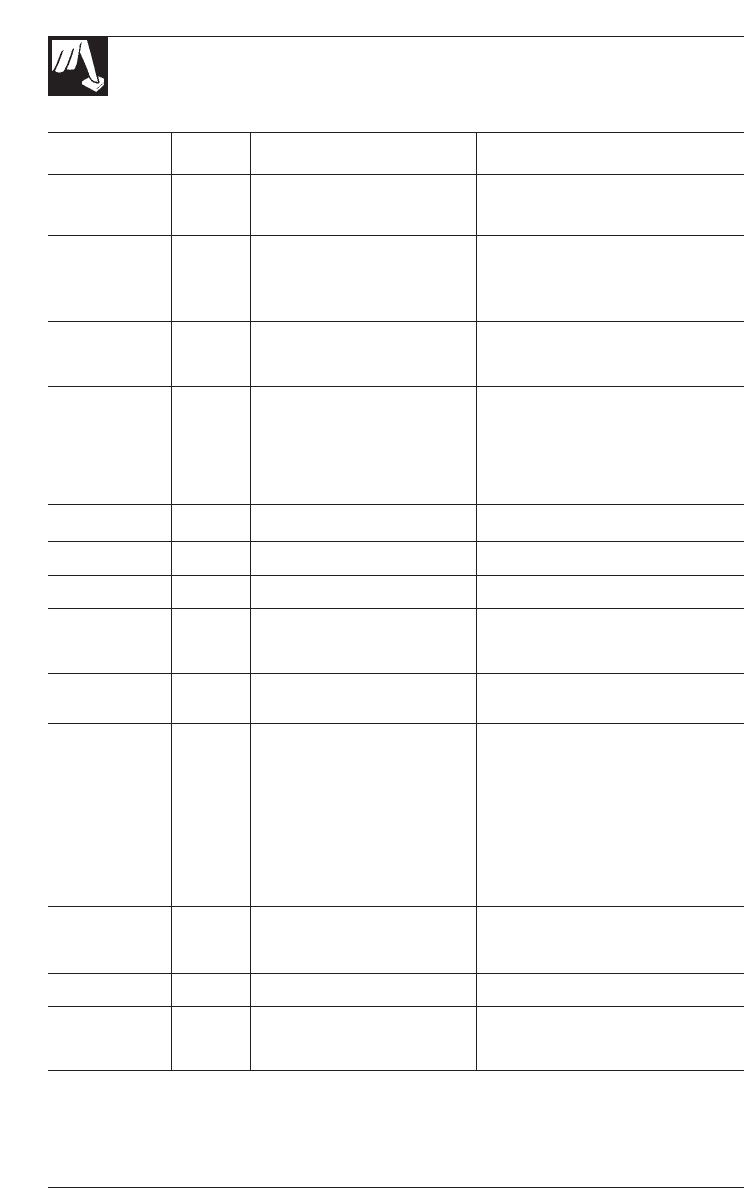
14
WHAT YOU CAN USUALLY WASH SAFELY
IN YOUR DISHWASHER.
Usually
Material Safe Exceptions (not safe) Special Instructions
Aluminum
YES Some coloured anodized
aluminium can fade
Some darkening or spotting possible.
Remove by scouring with soap-filled
steel wool pads.
China/Stoneware
YES Antique, metal-trimmed, hand-
painted or over-the glaze
patterns fade. Gold leaf will
discolour.
Crystal
YES Antique, metal-trimmed or
hand-painted patterns fade.
Gold leaf will discolour.
If in doubt, check with the
manufacturer. Or test wash one piece
daily for at least a month. Compare
with the rest of the set.
Load securely to prevent movement.
Check your manufacturer's instruction
for your crystal.
GLASS
YES Milk glass may yellow.
Iron
NO Iron will rust
Non-dishwasher
items - such as
electronic air
cleaning filters,
furnace filters,
paintbrushes, etc.
NO Do not wash in dishwasher. Damage to
dishwasher and discolouration or
staining of dishwasher may result.
Pewter
NO Pewter tarnishes
Plastics
YES If it doesn't say DISHWASHER
SAFE, test one piece in the top rack
before washing an entire set.
Stainless Steel
YES Rinse if not washing immediately.
Salty or acid foods can stain if left on.
Tin
NO Tin can rust.
Wood
NO Wood can warp, crack or lose
its finish wian any type of
washing.
Non-stick
coatings
YES After washing, wipe the non-stick
coating area with vegetable oil to keep
it from losing its non-stick quality.
Sterling Silver
and Slver Plate
YES Don't put in same silverware
basket with stainless steel.
Contact between metals can
damage silver.
Don't wash copper utensils in
the same load. Silver may get a
brown film.
Adhesive used to attach some
hollow-handle knives can
loosen.
Rinse if not washing immediately.
Salty or acid foods can stain if left on.
Dry detergent can cause difficult-to-
remove black spots. Place in back
section of silverware basket to avoid
exposure to detergent from the
detergent cup.


















